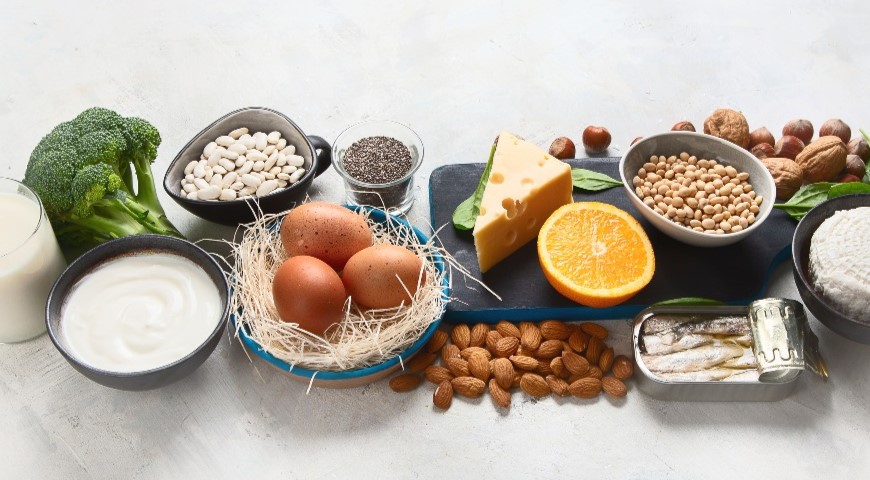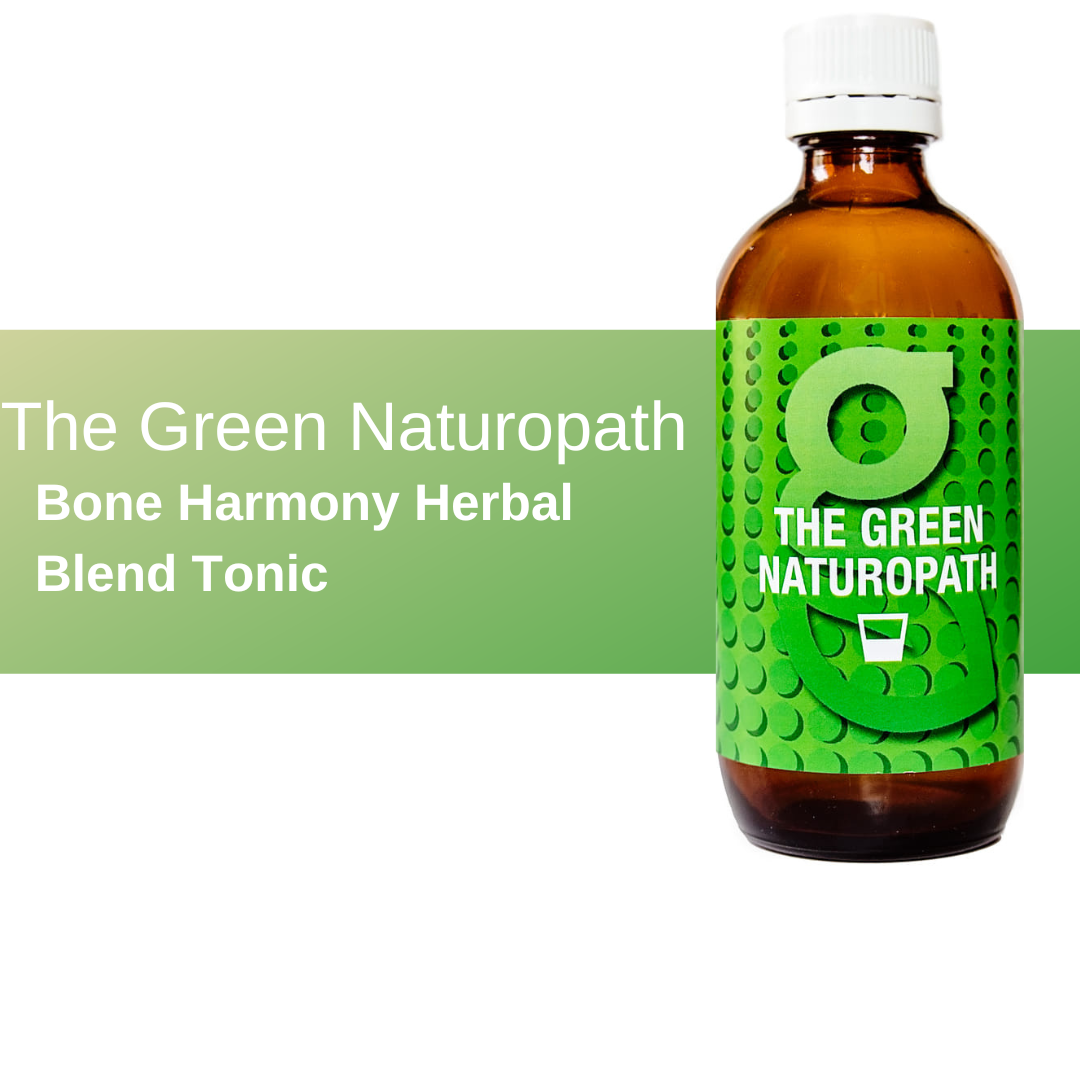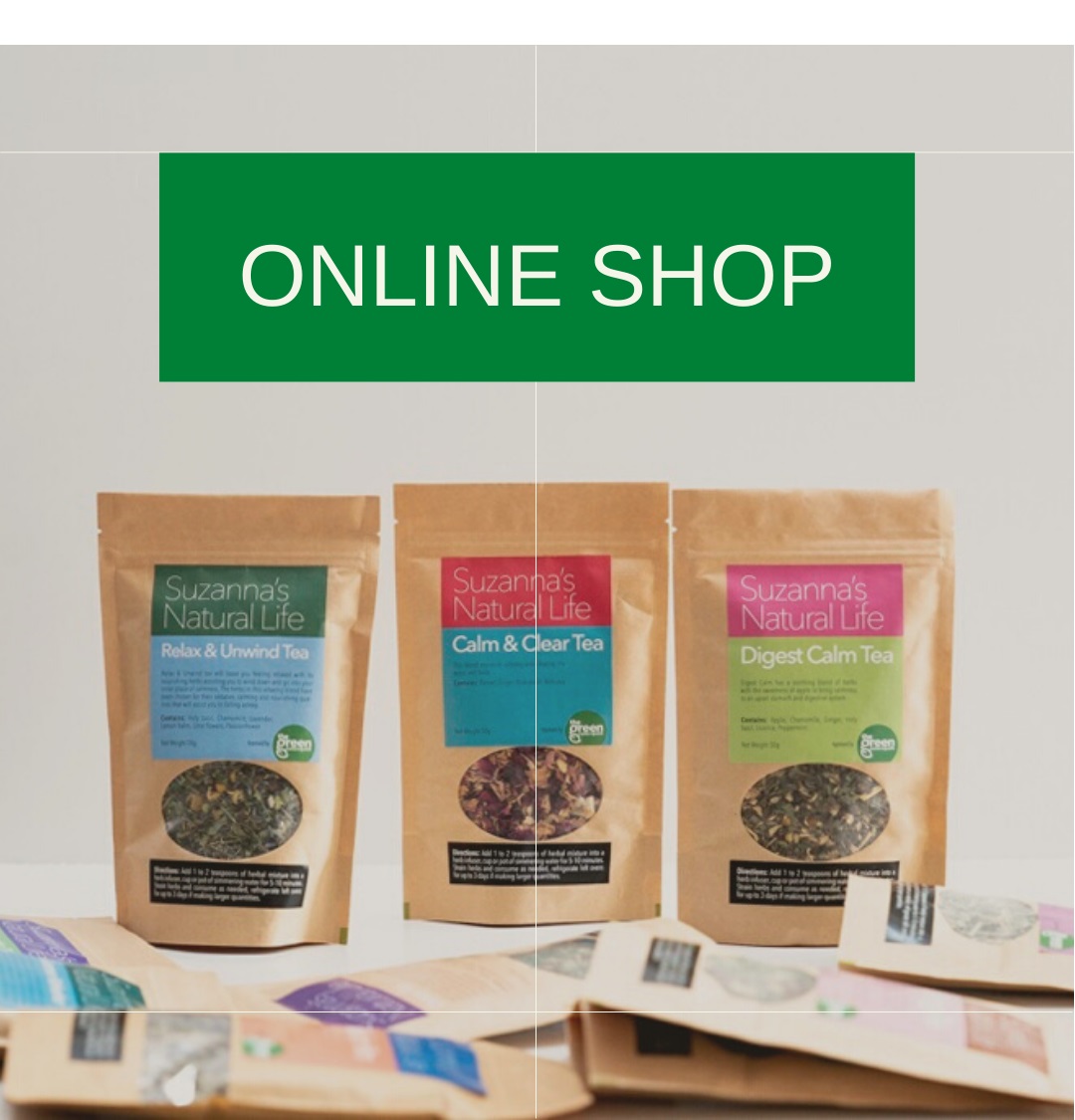
Building Strong Bones: A Comprehensive Guide to Prevent Osteoporosis
- Details
- On: 14 Aug 2023
- Written by SuzannaW

Maintaining healthy bones is essential to overall well-being, especially as we age. Osteoporosis, a condition characterised by weakened and brittle bones, is a serious concern that can lead to fractures and reduced quality of life. However, by adopting a proactive approach that includes a balanced diet, regular exercise, Phytoestrogen-rich foods, and a strategic supplementation plan, you can significantly reduce the risk of developing osteoporosis and promote bone health.
Nutrient-Rich Foods for Strong Bones:
Eating a well-balanced diet rich in essential nutrients such as Calcium, Vitamin D, Magnesium, Vitamin K2, Zinc, and Silicon can play a pivotal role in preventing osteoporosis. Include these foods into your diet to ensure you get plenty of bone-building nutrients.
Calcium-Rich Foods:
Calcium forms the foundation of strong and healthy bones. To meet our daily calcium needs of 800-1400mg, it's essential to include a variety of calcium-rich sources in our diet. However, there might be times when achieving these calcium goals becomes challenging. In such cases, considering a bone-supporting supplement containing calcium and other vital bone-forming elements like K2, magnesium, zinc, silicon, boron, and manganese can help ensure optimal calcium levels.
• Dairy milk (1 cup) – 300mg
• Fortified plant-based milk (1 cup) - 300mg
• Cottage Cheese (1 cup)– 138mg
• Greek yoghurt / Plain yoghurt (1cup) – 300mg
• Whey Protein Powder 30g – 100-150mg
• Soy protein Powder 30g – 200-250mg
• plant-based milk (1 cup) – 100-150mg
• Tofu (1/2 cup) – 80-130 mg
• Plant-based yogurt (1 cup) - 80-150 mg
• Collard greens (1 cup, cooked) - 266 mg
• Turnip greens (1 cup, cooked) - 197 mg
• Chinese cabbage (1 cup, cooked) - 158 mg
• Kale (1 cup, cooked) - 179 mg
• Bok choy (1 cup, cooked) - 158 mg
• Figs (5 medium) - 135 mg
• Broccoli (1 cup, cooked) - 62 mg
• Almonds (1/4 cup) - 94 mg
• Chia seeds (2 tablespoons) - 179 mg
• Canned salmon with bones (3 ounces) - 181 mg
• Canned sardines with bones (3 ounces) - 325 mg
• Tempeh (1 cup) - 184 mg
• Edamame (1 cup) - 97 mg
• Tofu (1/2 cup) - 250 mg
• Sesame seeds (1 tablespoon) - 88 mg
• White beans (1 cup, cooked) - 161 mg
• Navy beans (1 cup, cooked) - 127 mg
• Blackstrap molasses (1 tablespoon) - 137 mg
• Brazil nuts (1 ounce) - 45 mg
• Canned kidney beans (1 cup, cooked) - 88 mg
• Spinach (1 cup, cooked) - 240 mg
• Quinoa (1 cup, cooked) - 60 mg
Vitamin D Sources:
Vitamin D is essential for calcium absorption. To obtain it, you should spend time in sunlight and consume fatty fish like salmon and mackerel. Supplements can also be beneficial, especially in regions with limited sunlight exposure.
- Fatty fish (salmon, mackerel, sardines) - Varies, usually 400-600 IU per 85-gram serving.
- Cod liver oil - Varies, usually around 1360 IU per 5-milliliter teaspoon
- Canned tuna (in oil) - About 150 IU per 85-gram serving
- Fortified plant-based milk (e.g., almond, soy, oat milk) - Varies, around 100-120 IU per 250-milliliter cup
- Fortified orange juice - Around 100 IU per 250-milliliter cup
- Fortified cereals - Varies, usually around 40-100 IU per serving
- Egg yolks - About 40 IU per yolk
- Cheese (mainly Swiss and cheddar) - Varies, usually around 5-10 IU per 28-gram ounce.
- Mushrooms (exposed to sunlight) - Varies, generally around 100 IU per 85-gram serving
Age-Related Vitamin D Absorption and Blood Tests:
As we age, there is often a reduction in our body's ability to synthesize vitamin D from sunlight. This can be due to factors such as decreased time spent outdoors, changes in skin composition, and reduced efficiency in vitamin D production in the skin.
Regular blood tests are essential to monitor vitamin D levels, especially as we age. A blood test called the 25-hydroxyvitamin D test (25(OH)D) measures the level of vitamin D in your blood. This test provides valuable information about whether you have sufficient vitamin D levels or if you might be at risk of deficiency.
The optimal level of 25(OH)D can vary, but generally, levels between 20-50 ng/mL are considered appropriate. Regular blood tests can help ensure that you're maintaining adequate vitamin D levels for bone health, immune function, and overall well-being.
It's important to note that while sunlight is an excellent natural source of vitamin D, older adults might need to consider dietary sources and supplements to meet their vitamin D needs, especially if sunlight exposure is limited.
Vitamin D for good immune and mental health - Blog
Magnesium-Boosting Choices:
Magnesium supports bone density and helps regulate calcium levels. It can be found in nuts, seeds, whole grains, leafy greens, and legumes.
Vitamin K-Rich Options:
Vitamin K is vital for bone mineralisation. Kale, spinach, broccoli, and Brussels sprouts are excellent sources of this nutrient.
Protein-Packed Foods:
Adequate protein intake is crucial for bone health. To support bone tissue maintenance, include lean meats, poultry, fish, beans, lentils, and dairy products.
Increase Phyto-estrogens in your diet.
Phytoestrogens in certain plant-based foods offer a natural way to support bone health. These compounds have a similar structure to the hormone estrogen and can mimic its effects in the body. During menopause, when estrogen levels decline, phytoestrogens step in to help maintain bone density. By interacting with estrogen receptors, phytoestrogens contribute to bone strength and can reduce the risk of osteoporosis. Incorporating phytoestrogen-rich foods into your diet can be a valuable strategy for promoting strong and resilient bones throughout life.
The benefits of phytoestrogens and soy isoflavones for women
Regular Physical Activity:
Engaging in weight-bearing exercises can enhance bone density and strength. Activities like walking, jogging, dancing, and resistance training encourage the body to build and maintain bone mass. Aim for at least 30 minutes of moderate exercise most days of the week.
Lifestyle Habits for Bone Health:
Confident lifestyle choices can influence your bone health:
- Avoid Smoking and Limit Alcohol:
Smoking and excessive alcohol consumption can weaken bones. Quitting smoking and moderating alcohol intake contribute to better bone health.
- Maintain a Healthy Weight:
Both being underweight and overweight can impact bone health negatively. Maintain a healthy weight to support bone strength.
Foods and beverages that leach minerals from the bone
Certain foods and dietary habits can potentially lead to minerals leaching from bones over time. While these foods may not have an immediate or severe impact, their regular consumption, especially in excess, can affect overall bone health. Here are some foods and habits to be mindful of:
- Excessive Salt (Sodium) Intake: Foods high in salt, mainly processed and fast foods, can increase calcium excretion through the urine. High sodium levels can disrupt the balance of minerals in the body, potentially affecting bone health.
- Soft Drinks and Sugary Beverages: Colas and sugary drinks contain phosphoric acid, which may interfere with calcium absorption. Additionally, excessive sugar intake can lead to inflammation, indirectly impacting bone health.
- Excess Caffeine: While moderate caffeine consumption is generally not harmful to bone health, excessive intake (more than 400 mg per day) can interfere with calcium absorption and contribute to calcium excretion.
- Alcohol: Excessive alcohol consumption can hinder the body's ability to absorb calcium, magnesium, and vitamin D, essential for bone health.
- High-Phosphorus Foods: Certain processed meats, colas, and some processed foods, which are high in phosphorus, can interfere with calcium absorption if consumed in excess.
- High-Protein Diets: While protein is essential for bone health, excessively high-protein diets, especially if they lead to low fruit and vegetable intake, might increase calcium excretion through the urine.
- Oxalate-Rich Foods: Some foods high in oxalates, such as spinach, rhubarb, and beet greens, can bind to calcium in the digestive tract, potentially affecting absorption.
- Vitamin A Supplements in Excess: Excessive vitamin A supplement intake, particularly in the form of retinol, may negatively affect bone health by promoting bone resorption.
- Excess Vitamin C Supplements: Very high doses of vitamin C from supplements (well above the recommended dietary allowance) might impact bone health by increasing calcium excretion.
It's important to note that occasional consumption of these foods is unlikely to impact bone health significantly. However, a balanced and varied diet rich in calcium, magnesium, vitamin D, and other essential nutrients and a healthy lifestyle can help mitigate any potential adverse effects. Consult a healthcare professional for personalised guidance if you have specific concerns about your bone health or dietary choices.
Conclusion
Preventing osteoporosis requires a holistic approach that includes a nutrient-rich diet, regular exercise, and healthy lifestyle habits. By consuming foods rich in calcium, vitamin D, magnesium, and other essential nutrients, staying physically active, and making wise lifestyle choices, you can build and maintain strong bones that support you throughout your life journey. Remember to consult your healthcare provider before significantly changing your diet or supplementation routine. Your bones will thank you for the investment in their long-term health.
Check out this herbal tonic to assist with bone building and osteoporosis prevention.
“The human body has been designed to resist an infinite number of changes and attacks brought about by its environment. The secret of good health lies in successful adjustment to changing stresses on the body.” – Harry J. Johnson
MEDICAL DISCLAIMER
This content is for informational and educational purposes only. It is not intended to provide medical advice or to take the place of such advice or treatment from a personal physician. All readers/viewers of this content are advised to consult their doctors or qualified health professionals regarding specific health questions. The Green Naturopath takes no responsibility for possible health consequences of any person or persons reading or following the information in this educational content. All viewers of this content, especially those taking prescription or over-the-counter medications, should consult their physicians before beginning any nutrition, supplement or lifestyle program.




